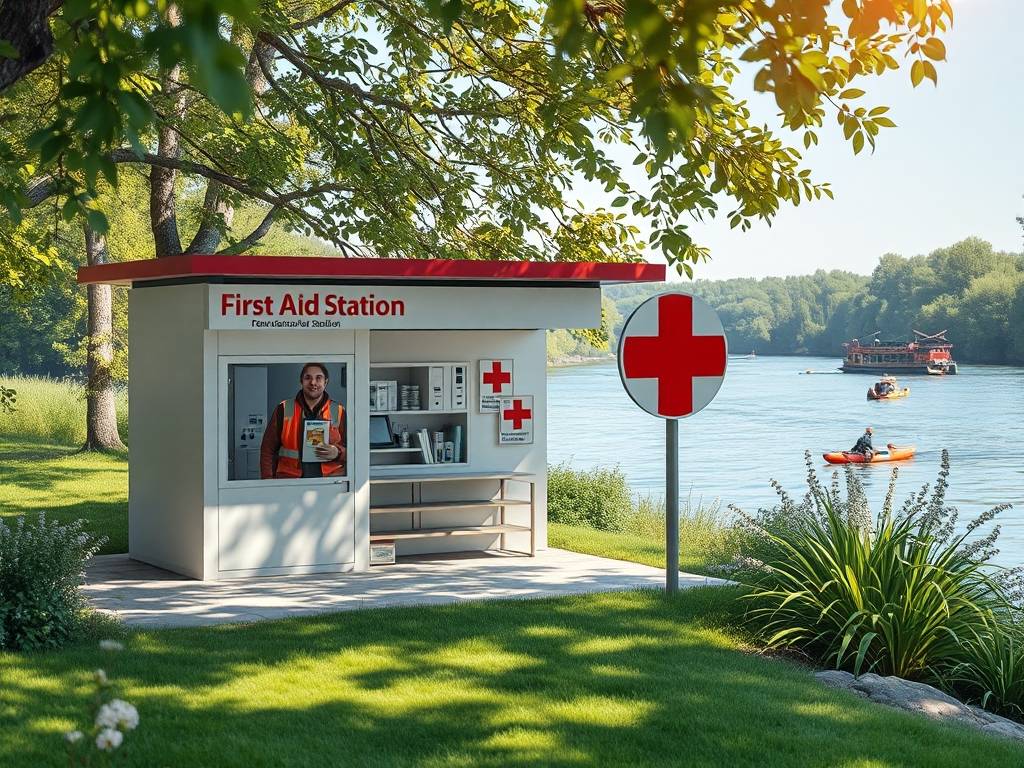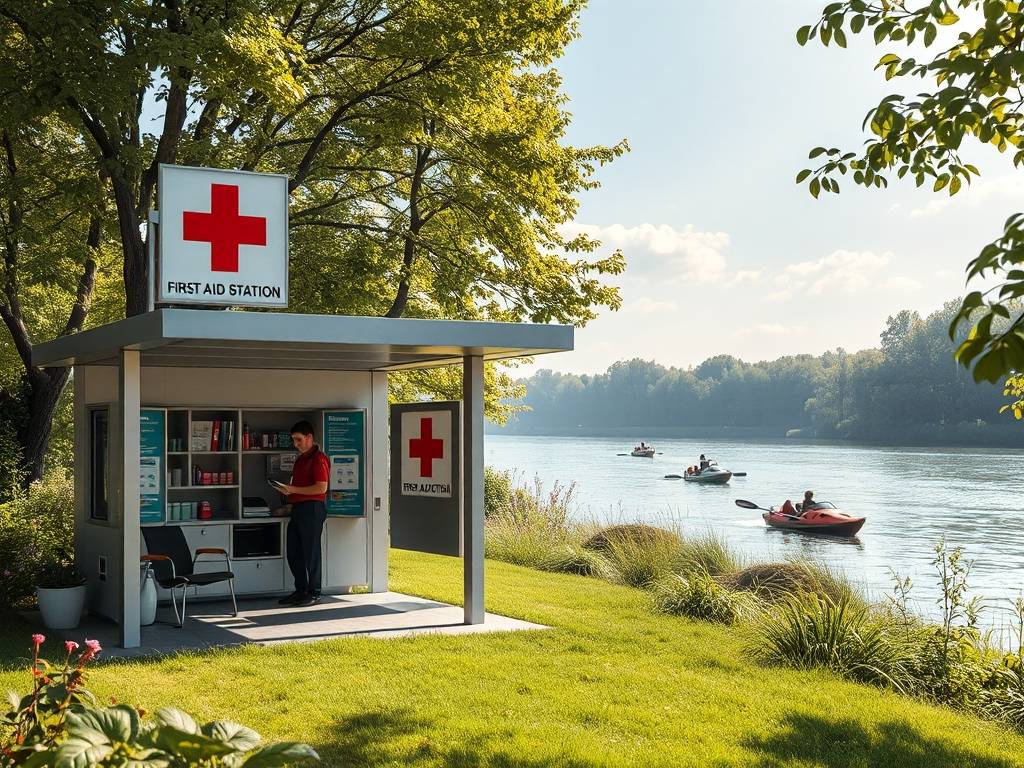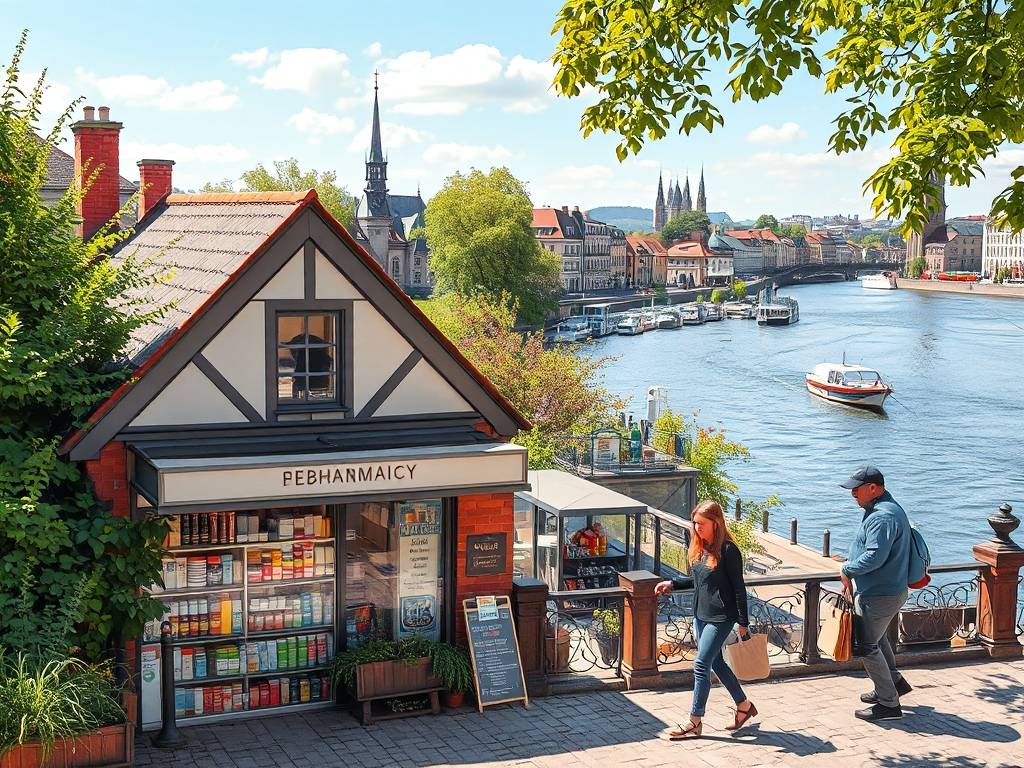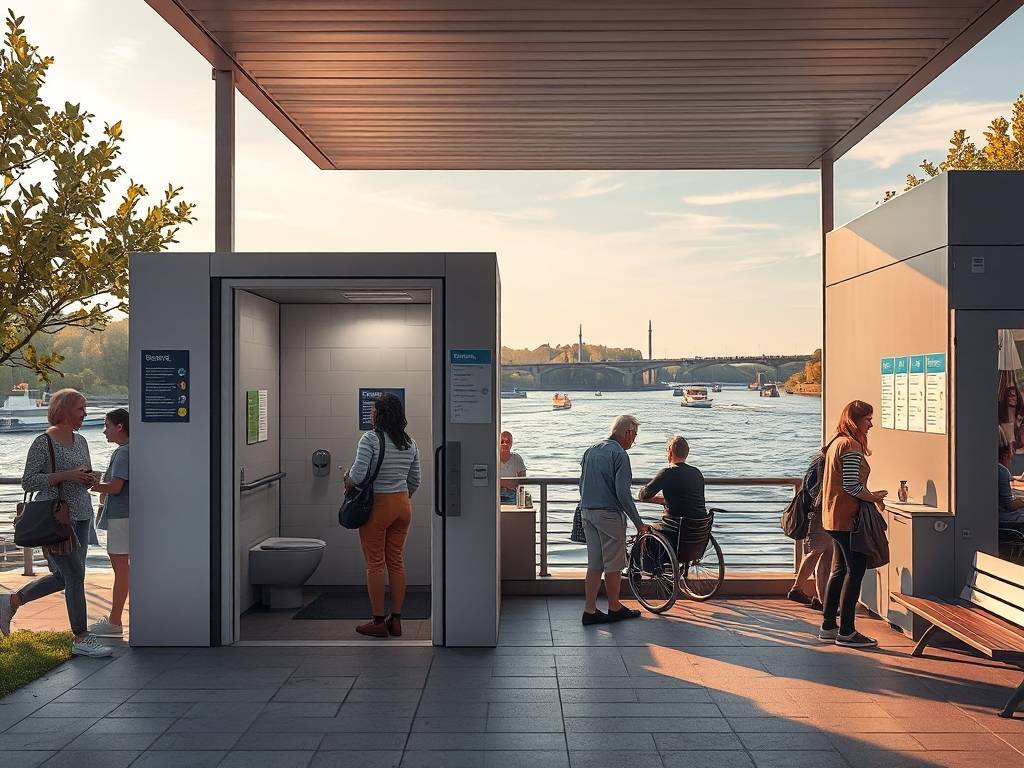Global Travel Information
Elbe River First Aid Stations: Where to Get Help
Your Safety Companion: A Guide to Elbe River First Aid Stations and Emergency Help
The Elbe River, winding its majestic path through the heart of Europe, is a paradise for cyclists, hikers, and nature lovers. Its well-known Elbe Cycle Route attracts thousands of visitors each year, all eager to soak in the stunning landscapes, historic towns, and serene riverside ambiance. As you plan your adventure, mapping out your stops at charming gasthauses and scenic lookouts, there's one crucial piece of your itinerary that deserves equal attention: knowing exactly where to find help if you need it. This guide is your comprehensive resource on Elbe River first aid stations, emergency protocols, and practical safety tips, ensuring your journey is not only memorable but also secure.
The good news for anyone enjoying the Elbe River bike path is that the region is well-prepared for minor medical incidents. The concept of "first aid stations" here is often integrated into the existing infrastructure, meaning help is rarely far away.

Where to Find Direct Assistance
You won't necessarily find standalone buildings labeled "First Aid Station" every few kilometers. Instead, assistance is strategically distributed through a network of reliable points:
-
Official Tourist Information Centers: Located in almost every major town and city along the river, such as Dresden, Meissen, Magdeburg, and Hamburg, these centers are your primary hubs for help. The staff are trained to handle emergencies and can provide immediate first aid for minor issues like blisters, cuts, or sunburn. More importantly, they know exactly how to contact local emergency services and can direct you to the nearest pharmacy or doctor. They are an invaluable resource for any traveler feeling unwell or disoriented.
-
Partner Hotels and Guesthouses (Gasthäuser): Many accommodations, especially those officially partnered with the Elbe Cycle Route, act as informal first aid points. Look for stickers in their windows or ask upon check-in. The proprietors are usually well-versed in assisting guests with common ailments and can provide basic supplies or directions to a local physician.
-
Ferry Terminals and Major Locks: Key crossing points and operational locks often have staff present who are trained in first aid. If you experience a problem near a river crossing, heading to the ferry terminal can be a quick way to find a responsible person who can assist or make an emergency call.
-
Local Pharmacies (Apotheke): In Germany and the Czech Republic, pharmacies are a cornerstone of community healthcare. For non-life-threatening issues like severe allergies, rashes, stomach troubles, or persistent pain, the local Apotheke is your best bet. The pharmacists are highly knowledgeable and can provide expert advice and over-the-counter medications. They can also advise if you need to see a doctor.
When It's More Serious: Handling a Medical Emergency

For serious injuries, sudden severe illness, or any situation where someone's life is at risk, the first aid stations mentioned above are a stepping stone. Your immediate action should be to contact the professional emergency services.
The universal European emergency number is 112.
Dial this number for an ambulance (Rettungswagen), the fire department, or the police. The operators typically speak English and will dispatch help to your location immediately. When you call, try to be as calm and precise as possible. State your location (using a kilometer marker on the bike path, a nearby town name, or by dropping a pin on your phone's map), the nature of the emergency, and the number of people involved.
Proactive Safety: Your Personal First Aid Kit
While knowing where the Elbe River first aid stations are is crucial, the first line of defense is always the kit you carry with you. A well-stocked personal first aid kit is non-negotiable for a multi-day trip along the Elbe. Your kit should include:
- A variety of adhesive bandages and blister pads (like Compeed)
- Sterile gauze pads and adhesive tape
- Antiseptic wipes and cream
- A pair of tweezers (for splinters)
- Scissors
- Pain relievers (e.g., Ibuprofen)
- Anti-diarrheal medication
- Antihistamines for allergic reactions
- Hydrocortisone cream for insect bites or rashes
- A digital thermometer
- Disposable gloves
Packing this kit addresses the vast majority of minor health issues that can occur on a long-distance journey, from the dreaded "cyclist's blister" to a pesky insect bite, allowing you to continue your adventure with minimal disruption.
Beyond Physical Ailments: Bicycle Breakdowns
An essential part of "getting help" on the Elbe River bike path involves dealing with mechanical failures. A broken chain or a flat tire can strand you just as effectively as a sprained ankle. Fortunately, the region is equipped to handle this too.
- Bicycle Repair Shops (Fahrradwerkstatt): Most towns along the route have at least one bike shop. It's a good idea to note their locations and opening hours as you pass through or plan your stops.
- Mobile Phone and Apps: Ensure your phone is charged and has coverage. Apps like "Bike Repair" can guide you through basic fixes, and a quick online search can locate the nearest repair service.
- Self-Sufficiency: Carry a basic bike repair kit including a spare inner tube, a patch kit, tire levers, a multi-tool, and a portable pump. Knowing how to fix a flat tire is one of the most valuable skills for any cyclist.
Staying Informed and Connected
A little preparation goes a long way in preventing emergencies. Before you set off each day, check the weather forecast. The weather along the Elbe can change quickly, and being caught in a thunderstorm or extreme heat is not only unpleasant but also dangerous. Dress in layers and always have a waterproof jacket handy.
Staying hydrated and protected from the sun is paramount. The river breeze can be deceiving, and it's easy to get sunburned or dehydrated without noticing. Carry plenty of water and use high-factor sunscreen.
Finally, always let someone know your planned route and estimated time of arrival. Whether it's the staff at your hotel or a friend back home, having someone aware of your plans is a simple yet powerful safety net.
In conclusion, the network of support along the Elbe River is robust and reliable. By understanding that help is available at tourist information centers, partner hotels, and pharmacies, knowing how to activate emergency services by dialing 112, and by being self-sufficient with a personal first aid and bike repair kit, you equip yourself with the knowledge for a safe and fulfilling journey. The Elbe River offers an unforgettable experience, and with this guide, you can explore its wonders with confidence and peace of mind, ready to handle any minor mishap that comes your way.
相关文章
- Elbe River Wheelchair Rentals: Mobility Aids for Visitors
- Elbe River Stroller-Friendly Paths: Easy Walks with Kids
- Elbe River Accessible Restrooms: Facilities for All Travelers
- Elbe River Pharmacies: Find Medication Near the River
- Elbe River Hospitals: Medical Care in Case of Emergency
- Elbe River Travel Insurance: Protect Your Trip
- Elbe River Visa Information: Requirements for International Travelers
- Elbe River Passport Tips: Keep Your Documents Safe
- Elbe River Customs Rules: What to Declare When Entering Germany
- Elbe River Language Apps: Translate on the Go
发表评论
评论列表
- 这篇文章还没有收到评论,赶紧来抢沙发吧~


